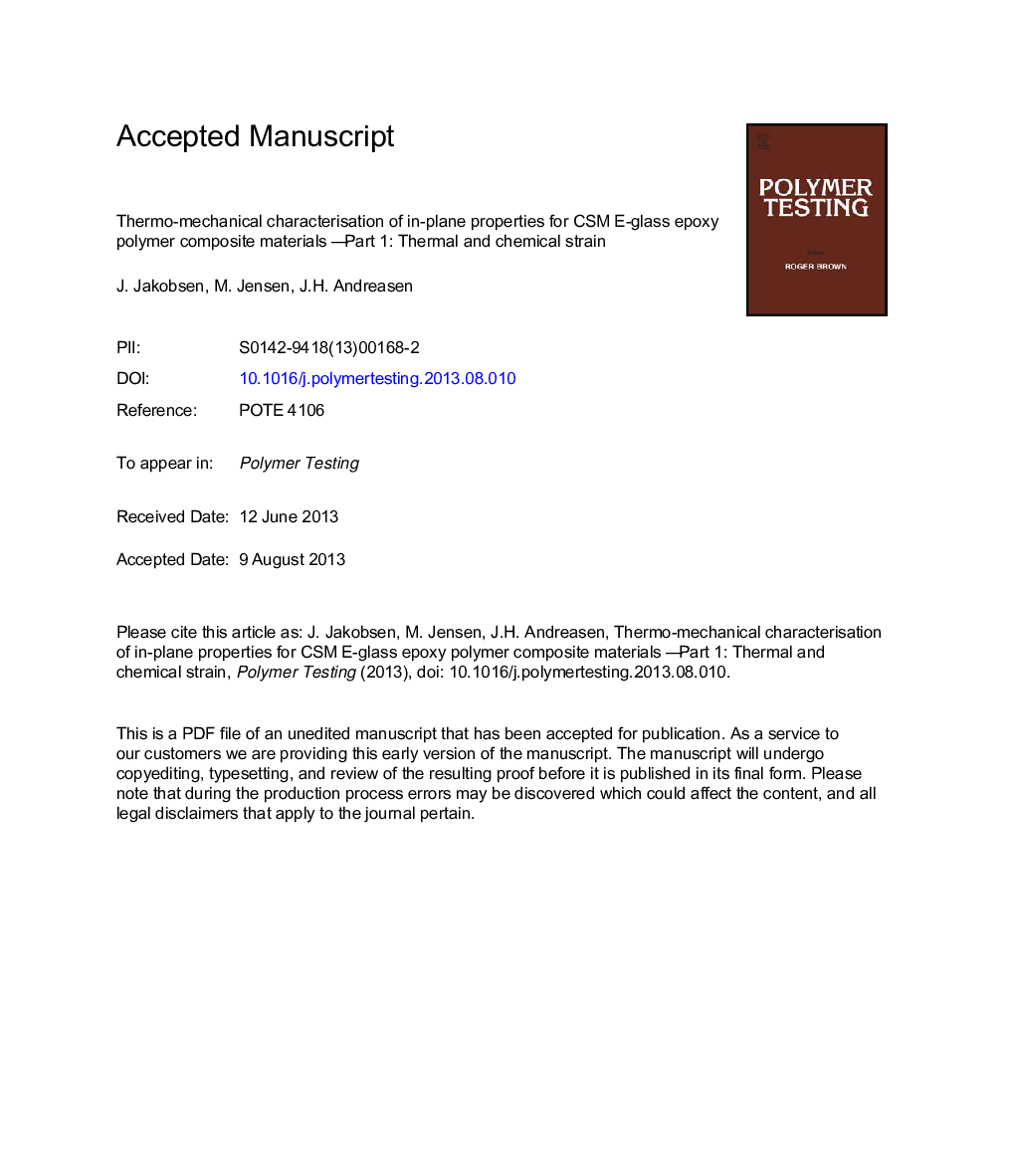| Article ID | Journal | Published Year | Pages | File Type |
|---|---|---|---|---|
| 5206337 | Polymer Testing | 2013 | 20 Pages |
Abstract
The in-plane thermo-mechanical properties and residual stresses of a CSM E-glass/Epoxy material are characterised through the use of DSC and TMA. The measured data is used to generate material models which describe the mechanical behaviour as a function of conversion and temperature. The in-plane thermal expansion coefficient (α) of the composite material decreases above the glass transition temperature (Tg), which is compensated by a higher out of plane deformation above Tg. Comparison of α and chemical shrinkage measurements suggests that chemical bonds between the polymer matrix and the glass fibres are formed prior to shrinkage of the epoxy matrix, i.e., at an early processing stage. This suggests that production of composites with low residual stresses requires focus on reactivity between the matrix and the sizing rather than the matrix cure properties. As a consequence, residual stresses in the composite material are mainly a result of restricted cure shrinkage rather than mismatch between thermal expansion coefficients.
Related Topics
Physical Sciences and Engineering
Chemistry
Organic Chemistry
Authors
J. Jakobsen, M. Jensen, J.H. Andreasen,
